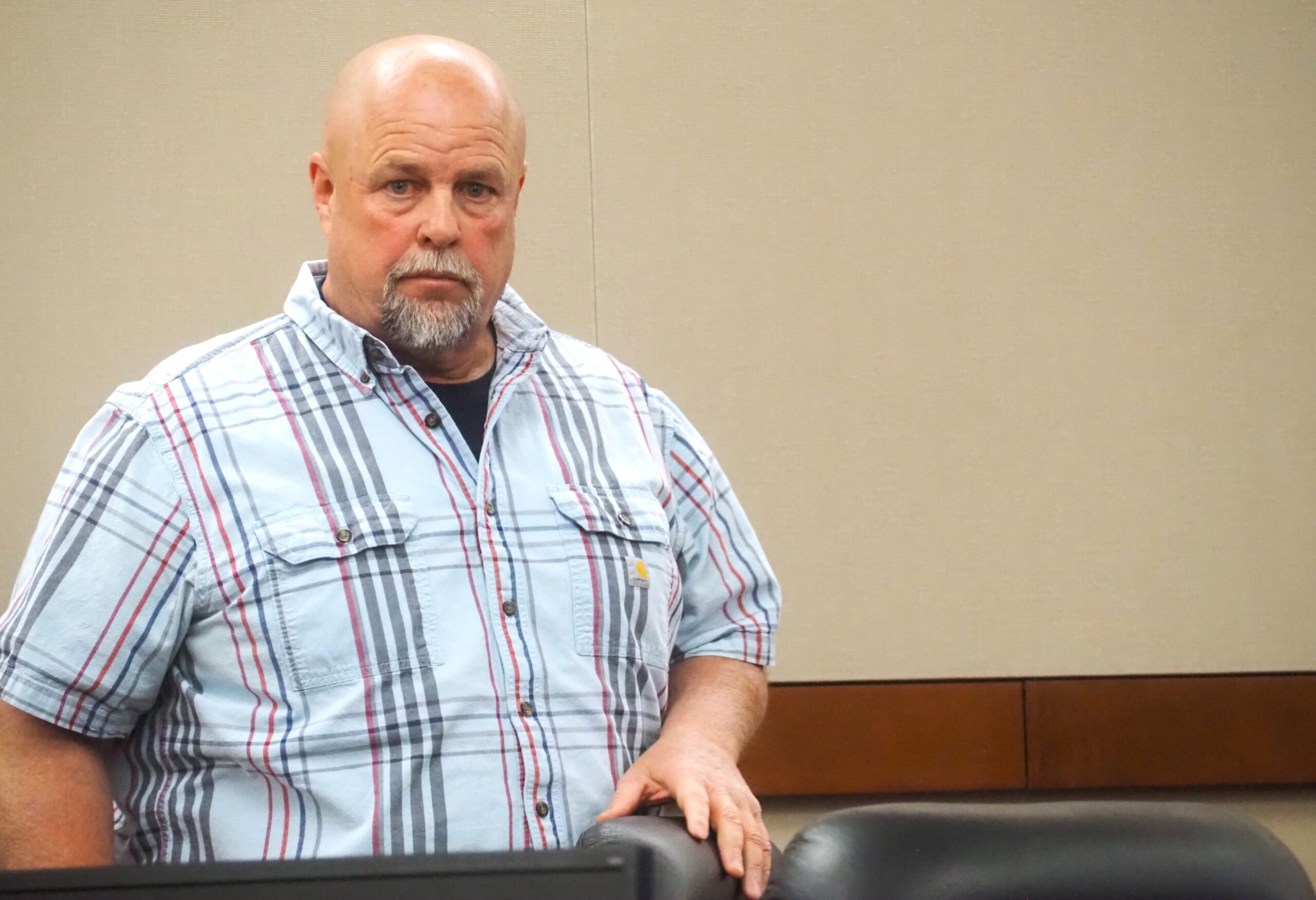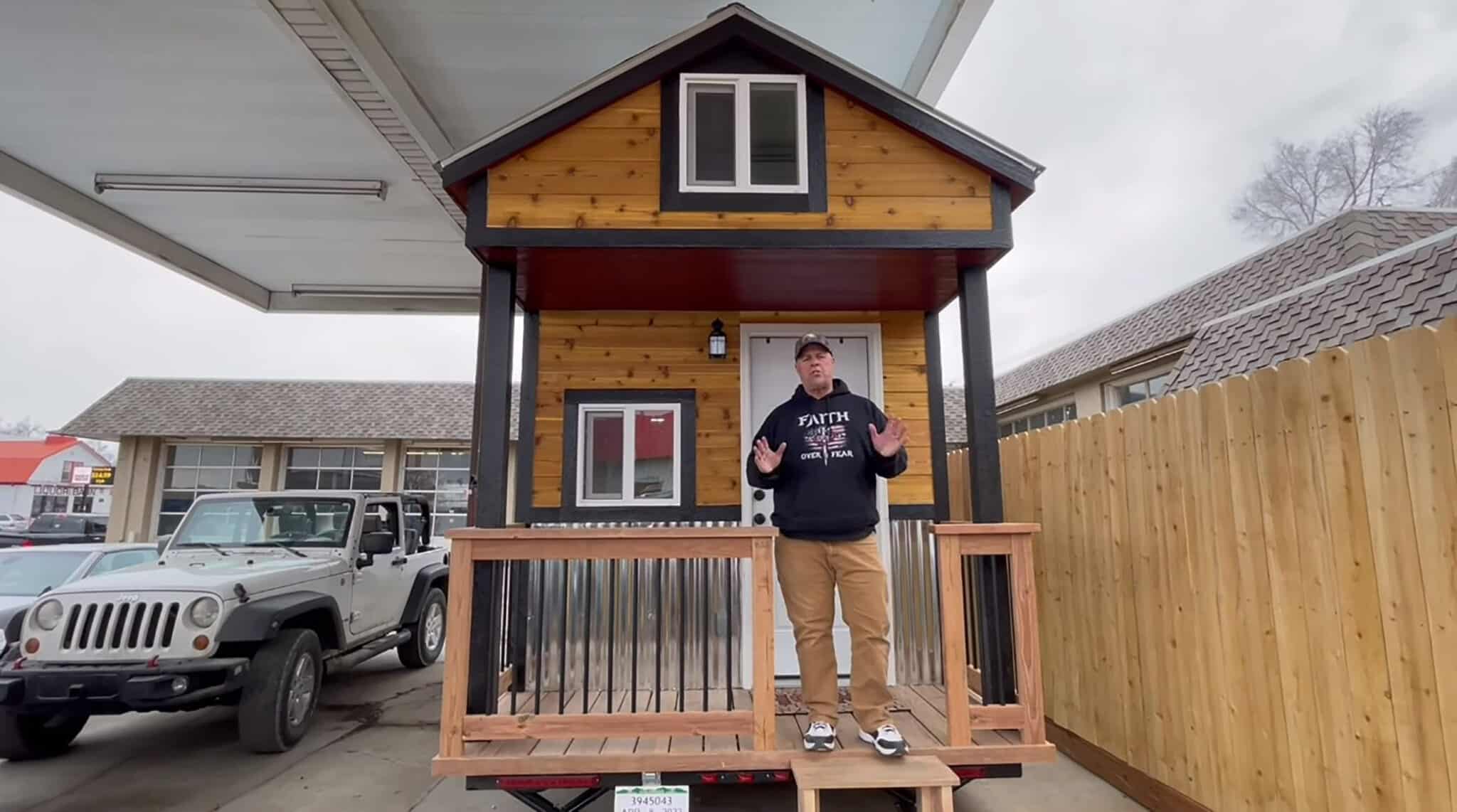
Holy Ground Tiny Homes founder Matt Sowash looks on during a civil trial in Arapahoe County District Court on Monday, April 22, 2024. (BusinessDen file)
Holy Ground Tiny Homes, a bankrupt builder in Englewood that owes $6 million to 190 former customers and was described as “a ruse” by one judge, is shutting down.
The company told a Denver bankruptcy court on Aug. 6 that it will convert from a Chapter 11 bankruptcy to a Chapter 7, liquidate its assets and split them among creditors. The move comes six weeks after Holy Ground’s CEO blamed a theft verdict for its downfall and a few weeks after Holy Ground failed to send a first round of repayments to customers.
“Debtors are unable to cure the default due to unforeseen circumstances,” its lawyers say.
As BusinessDen first reported in 2022, Holy Ground, then a Christian nonprofit, convinced nearly 200 customers to pay full or partial deposits for tiny homes, delayed building those homes for months or years, and refused to refund the deposits. Some Holy Ground victims, who are spread across the country, lost their life savings.
Holy Ground filed for bankruptcy a few months later, was investigated and found to have spent company cash on a Las Vegas vacation and dozens of vehicles. It then vowed to reorganize and repay customers 25 percent of its quarterly profits for five years, starting in July.
Jamie Buechler, a bankruptcy attorney who represents some Holy Ground customers, said she was “shocked” when a judge approved that reorganization plan in February.
“Plans like these are often called ‘trust me plans,’” she said of Holy Ground’s reorganization. “What I mean is that they’re dependent upon future revenues and future income, as well as the good faith of the people in charge to operate the business to the benefit of creditors.”
In April, a former customer who sued Holy Ground CEO Matt Sowash for theft of her $24,000 deposit was awarded about $84,000 after Judge Don Toussaint in Centennial found that “Holy Ground, or at least its purported purpose in manufacturing tiny homes, is a ruse.”
Then, in an affidavit they filed in June, Sowash and his attorney, Brian DeBauche, claimed that he wouldn’t be able to pay Daniels because Holy Ground was going out of business.
“Creditors all awaited the July deadline for payments to begin, assuming the company continued to conduct business,” their June 27 affidavit notes. “It appears that it cannot.”
Sowash and DeBauche blamed the press for Holy Ground’s troubles, claiming that coverage of Sowash’s trial in April “went nationwide” and then “orders for tiny homes stopped.”
“Ms. Daniels may now be a victim of her own success,” they wrote in their affidavit.
Though Sowash declared the affidavit was true under penalty of perjury, a few days later he denied that Holy Ground was shutting down in an email to BusinessDen.
“Not closing. Not liquidating. We are downsizing to a smaller facility,” he wrote.
Sowash did not answer requests this week to discuss Holy Ground and what its closure means for the nearly 200 people who gave his company money for a home they never saw.

Matt Sowash stands on the patio of a 14-foot house as part of a Holy Ground Tiny Homes promotional video. (YouTube)
“At this point, I don’t really expect to get anything back from them because I don’t think that Matt Sowash has anything,” said Dacota Huzzen, a real estate agent in California.
In 2021 and 2022, Huzzen paid about $20,000 in deposits to Holy Ground because it was cheaper than its competitors and appeared professional. Huzzen said she was strung along and given shifting timelines for completion by Sowash and others at Holy Ground.
“Long story short, they took my $20,000, went bankrupt, I had to hire bankruptcy attorneys, and I haven’t gotten my money back or a tiny house,” she said in an interview.
“My bankruptcy attorney thought I could maybe get a couple thousand dollars out of the $20,000 that I put into it — maybe,” she said. “He hasn’t sugarcoated anything, so I have sort of written it off and moved on. If I get anything, I’ll be like, ‘Oh, wow, that’s a great surprise.’”
Huzzen and others who are owed money by Holy Ground will have until Sept. 3 to object to its plans to close and liquidate. Early this year, customers who lost their deposits voted to support its reorganization plan. Buechler said that is because they harbored some hopes.
“This business wasn’t going to last for long. So, I think most creditors stuck their neck out and said, ‘Hey, we’re going to be paid something, so let’s see what they can do,’” the bankruptcy lawyer said. “Because there are not a lot of assets there to sell and distribute.”

